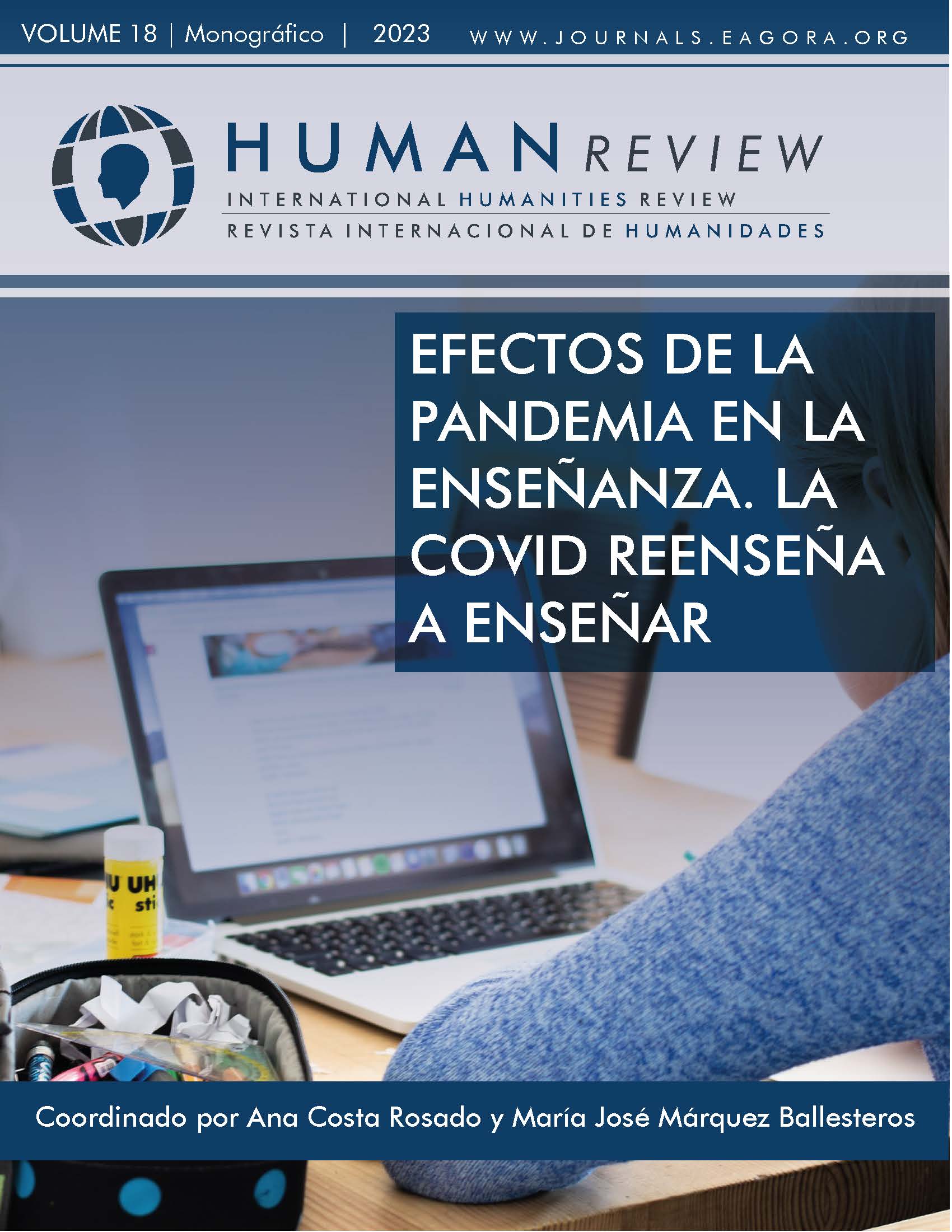Teaching innovation faced the challenges of the limitations of the covid-19 pandemic for industrial and laboral sociology
DOI:
https://doi.org/10.37467/revhuman.v18.4862Keywords:
Teaching, Sociology, Bolonia Plan, Teaching innovation, Stake, Methodology, CollegeAbstract
We analyze the differences between carrying out a traditional teaching in which we fill our class hours with master sessions and between an innovative teaching according to the regulations and indications of the Bologna plan in which we must have around 50% of the sessions as practices. that will be evaluated according to what is established at the beginning of the subject. In this work we compare two subjects: one with traditional teaching and one with innovative teaching and our objective is to measure if one of the two generates more adherence, more presence in class and more interaction with the teacher. Thus, we establish a comparative methodology between the two and examine those indicators. With these results, we can reach some conclusions and open a discussion for future steps and improvements in face-to-face University teaching.
References
Abellán López, M. Á. y Simón Medina, N. (2021). Las comunidades de aprendizaje y sus potencialidades transformadoras. En M. Á. Abellán López y J. A. Rodríguez del Pino, Participación y sostenibilidad en la sociedad valenciana (pp. 155-167). Tirant lo Blanch.
Bañón i Martínez, R. y Tamboleo García, R. (2014). La modernización de la política y la innovación participativa. Universidad Complutense de Madrid.
Fernández Olivero, E. D. y Simón Medina, N. (2022). Revisión bibliográfica sobre el uso de metodologías activas en la Formación Profesional. Contextos educativos: Revista de educación, 30, 131-155. https://doi.org/10.18172/con.5362
Giménez Rodríguez, S. (2007). Construyendo el Espacio Europeo de Educación Superior: la tutoría personalizada como acompañamiento formativo. Miscelánea Comillas: Revista de Ciencias Humanas y Sociales, 65(127), 689-705. https://dialnet.unirioja.es/servlet/articulo?codigo=2594326
González Gómez, J. P., González López, M. P. y Gomis Sánchez, M. V. (2014). Innovación Docente. Club Univeritario.
Pérez Josín, J. V. (2014). Innovación Docente. En E. Pastor Seller y M. A. Martínez Román, Trabajo social en el siglo XXI: una perspectiva internacional comparada (pp. 25-37). Grupo 5.
Rogero García, J. (2020). La ficción de educar a distancia. Revista de Sociología de la Educación-RASE, 13(2), 174-182. https://doi.org/10.7203/RASE.13.2.17126
Ruiz San Román, J. A., Pedreño Santos, A., García Rica, Á., Jiménez Pelagio, N. y García Fernández, T. (2022). Museos y comunicación. Experiencias de Proyectos de Innovación Docente para el uso de museos con estudiantes de comunicación. En R. Tamboleo Garcia y D. Santos González, Campos de Sociología bajo presión (pp. 449-462). Dykinson.
Santos González, D., & Tamboleo Garcia, R. (2023). De la incertidumbre a la reconstrucción social. Dykinson.
Tamboleo García, R. (2014). Community Management: Comunicación Política 2.0. Instituto de Educación Superior TQm.
Tamboleo García, R. (2021). Medios sociales o redes sociales: conceptualización y metodología para sociología en español. Revista Inclusiones: Revista de Humanidades y Ciencias Sociales, 8(Extra 10 de julio-septiembre), (Ejemplar dedicado a: Homenaje Ihor Popovych), 354-359.
Tamboleo Garcia, R., & y Santos González, D. (2022). Sociedades en Tiempos de Devastación. Asociación Castellano Manchega de Sociología.
Downloads
Published
How to Cite
Issue
Section
License
Those authors who publish in this journal accept the following terms:
- Authors will keep the moral right of the work and they will transfer the commercial rights.
- After 1 year from publication, the work shall thereafter be open access online on our website, but will retain copyright.
- In the event that the authors wish to assign an Creative Commons (CC) license, they may request it by writing to publishing@eagora.org









